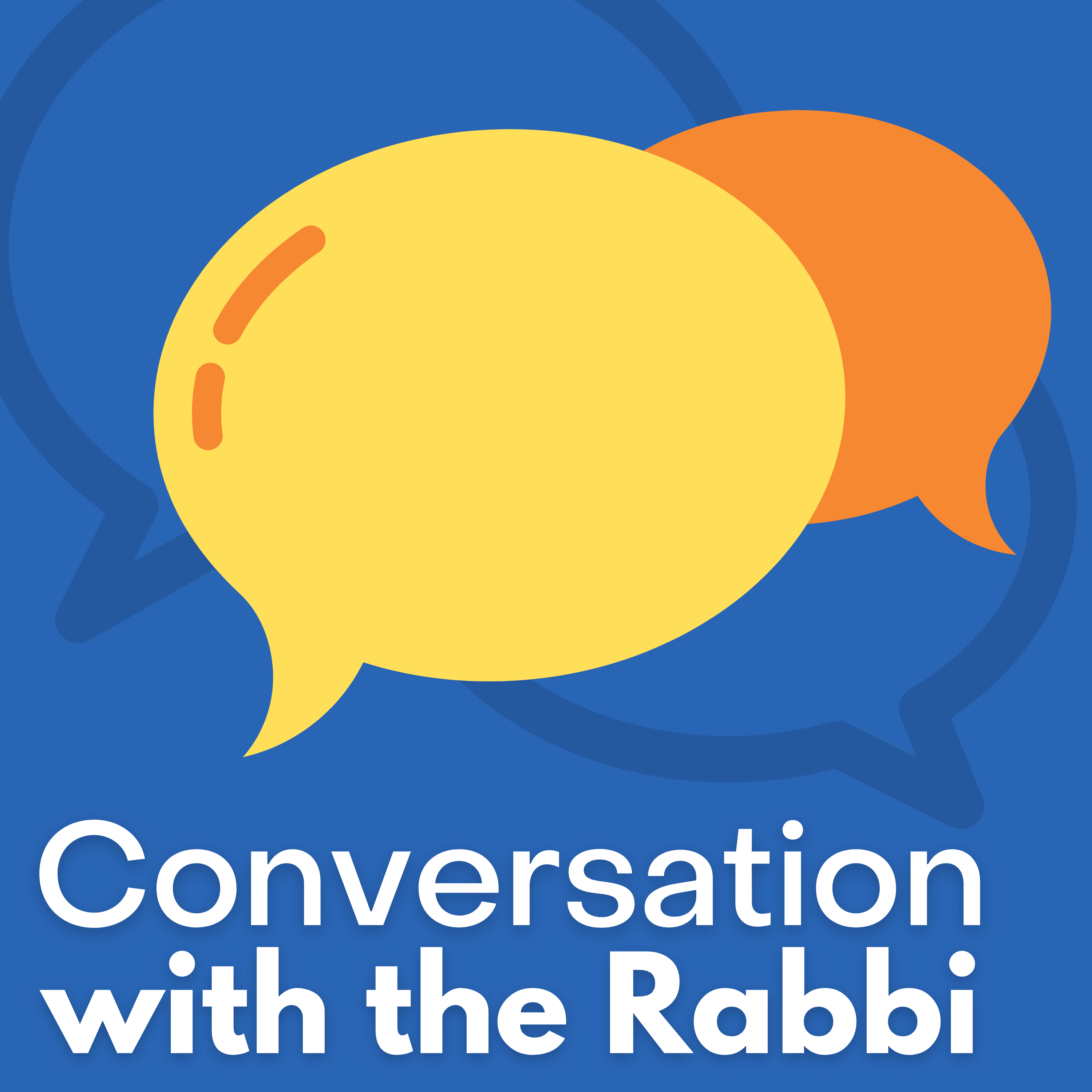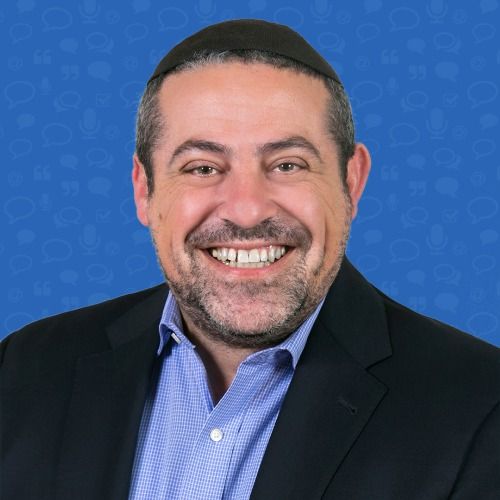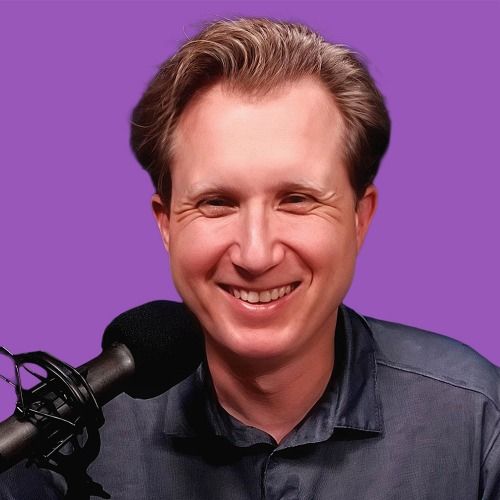Welcome to the Conversation
In this inaugural episode, Rabbi Michael Beyo talks with co-host Dr. Adrian McIntyre about what you can expect from the new Conversation with the Rabbi podcast.
Rabbi Beyo also talks about his role as CEO of the East Valley JCC in Chandler, Arizona and hints at some of the twists and turns in his personal journey -- which we will explore more fully in future episodes.
Conversation with the Rabbi is a project of the East Valley Jewish Community Center, a 501(c)(3) nonprofit, neighborhood organization that has served individuals and families inclusive of all races, religions, and cultures since 1972. Visit us online at https://www.evjcc.org
The show is recorded and produced in the studio of PHX.fm, the leading independent B2B online radio station and podcast studio in Phoenix, Arizona. Learn more at https://phx.fm
Transcript
From PHX.fm, this is Conversation with the Rabbi -- featuring open honest dialogue and sometimes unconventional perspectives on the world we all share.
Adrian McIntyre:Welcome to the inaugural Conversation with the Rabbi podcast. I'm Adrian McIntyre with PHX.fm. It is my pleasure to welcome your host for this show, Rabbi Michael Beyo, with the East Valley Jewish Community Center. Hi, Rabbi.
Rabbi Michael Beyo:Hey, Adrian, how are you? Thank you for being here with me.
Adrian McIntyre:I'm delighted to be here with you. This show is something that we've talked about for a while. It's something you've been keen to do. And here we are. So this is exciting.
Rabbi Michael Beyo:It is very, very exciting, and I can't believe that we actually doing this after so many months of planning this.
Adrian McIntyre:And our original concept, of course, was in a pre COVID era when we were going to be in together in the studio. But now here we are in our virtual recording studio. We've got a very interesting lineup of guests who are all going to be having a conversation with the rabbi. Before we get into the show itself and what your goals are, what you want to accomplish here, let's tell folks who don't know who you are a little bit about you and about the work you do with the East Valley JCC. How do you introduce yourself if you're in a crowd of strangers? What do you usually say to folks?
Rabbi Michael Beyo:Well, I usually say that I am an Italian Jew, because I was born in Italy. And I also lived in Israel for many, many years, roughly 18 years, travelled around Europe lived in different countries, England, France, and then I say that the East Valley JCC, about five years ago, they were looking for a competent and good looking new CEO, and they got the good looking one.
Adrian McIntyre:Very good. I like that a lot. And competent, I think. I mean, most people don't realize the scope of the programs, the budget that you oversee. This is a large organization with a lot of different programming. Obviously what's happening now, in the midst of the COVID-19 pandemic, things look a little bit different. But if you take us to the more general level, first of all, what happens in and around the East Valley JCC? And what's changed now, as so much has changed for so many?
Rabbi Michael Beyo:Sure. So, a lot has changed over the last five years since I first arrived at the JCC. For those folks who don't know, that's the East Valley Jewish Community Center in Chandler, Arizona. It was primarily a childcare center. And the organization has been around since 1972, with one of the top of the line childcare centers. And the organization also was focused very much on Holocaust education and community building. Since I arrived, we revolutionized a little bit the scope of the work that we do. And as of pre COVID, we had about 85 different programs in 850 different sessions, covering six different departments. So we grew from, I would say, a relatively small organization into one of the largest Jewish organizations in Greater Phoenix and one of the larger employers and organizations in the East Valley.
Adrian McIntyre:One of the things that might not be immediately obvious is that the East Valley JCC, while a Jewish community center, has served individuals and families of all religions, races, genders, cultures, etc. You have a profound commitment to diversity of religious expression, as well as diversity of cultural ways of living. Talk a little bit about that.
Rabbi Michael Beyo:You could not have expressed it better. I'm gonna copy every word that you just said. I like to say we are an open tent where there are no walls. We welcome any person, irrespective of their background of their belief system or lack of belief system. We, most of our programs, if not all of our programs actually let let me stand corrected all of our programs are open to everybody, including our childcare childcare center. We are Jewish in the sense that we talk about Jewish values that are ultimately not different than values that we find in many different traditions. And what's Jewish about them is the way that we express them. That is the main difference, I would say, between Jewish values and non Jewish values when we talk about the childcare. But we have programs that go into human dignity and Holocaust education, and interfaith, and community outreach, dialogues with all members of the community. And this is what a community center is all about. It's not about being secluded within your own community, but it is about opening up and learning from each other.
Adrian McIntyre:Now, that brings us to this program, Conversation with the Rabbi. Even again, the name might imply something that people might assume is in a more traditional framework. But as you expressed to me early on, you had a different vision for this show. And you want people to understand that having a conversation with the rabbi can be something unexpected, something thought provoking, something eye opening. What is your vision for the show, the kind of guests we're going to have and engage with? What can folks expect from this program?
Rabbi Michael Beyo:So first of all, I would like to say, and I would like to think of myself of being a little bit different than the average Rabbi that one may find in the streets of America. That, first of all, is because I was not born in this country. And therefore I bring maybe a point of view that might be a little bit different. And second, I was raised in an ultra-Orthodox community. And over the years over the last, I would say, 10 years, I transitioned away from that self definition of myself of being ultra-Orthodox, I cherish very much from my upbringing, but I am not there anymore. And so I am able to evaluate many topics, under different points of view, both the one that I was raised, and my current new point of view, which is a blend, it's a blend between being a rabbi and being a CEO, and being an entrepreneur, and being a father and a friend, and a member of the community, an Italian and Israeli and also American, I'm a proud American citizen, I voted for the first time. And it was awesome, it was exciting.
Adrian McIntyre:So many people, as the media has fanned the flames of fear, anger, suspicion, and doubt -- which of course, serves for a certain business model to increase the bottom line, because what makes people upset, holds their attention gets them to click, etc -- so many people seem to me to have forgotten something that they might remember from not that long ago, which is that conversation itself is a simple and yet incredibly powerful mode of human interaction. That to simply talk with someone, not just at them, is a pathway to discover things we didn't know about ourselves as well as about them. So you're bringing on this program guests from a variety of different backgrounds, many from Jewish communities here and overseas, but others as well, who represent different communities of faith, different political points of view, different professional commitments, etc. Why is that important to you?
Rabbi Michael Beyo:Because as human beings, we are multifaceted, and we should never stop learning and inquiring about ourselves. And I find that one way that we can learn more about ourselves and be better human beings is by learning from others. You saying it, it's a conversation, exactly. It's a conversation and not a debate. It's a conversation and not an argument. That does not mean that I will agree with everything that my guests will say, but we will have a conversation about it. We're not going to have a debate. It's also about learning from those who disagree with you. And for sure, learning from everybody. One of the greatest Jewish philosophers, Maimonides, said, you have to accept the truth, whatever its source is, and I hope that my guests are going to bring a lot of truth into what they say. And truth comes in many different colors and shades. And, and I hope to be able to share with the with all the audience to bring maybe something of my own truth, and together build again, stronger friendships because stronger, stronger communities and ultimately learned from each other.
Adrian McIntyre:I couldn't agree more. It's partly why I agreed to co host the show be your sidekick, if you will, as a cultural anthropologist, a secular one raised in a traditional Seventh Day Adventist Christian home, but over the first 15 or so years of my own life, finding my way away from that community without any animosity or resentment, caring very much about that background, but not continuing to participate in that community. I found as I've traveled around the world and talked with people in many different places, that listening to others helps us discover things about ourselves. So I'm excited to join you on this journey. I am curious a little bit about your own biography. Let's end this introduction with that, because you've alluded to it several times. And I don't know if the full implications of this are clear for people. So you grew up in Italy?
Rabbi Michael Beyo:Yes.
Adrian McIntyre:But you left when you were 15. Talk about what it was like before, and then why you left.
Rabbi Michael Beyo:I left Italy, because at the time in Milano, Italy, the wasn't a possibility for me to continue my rabbinical studies. So I left Milano and I went to study in a rabbinical seminary or yeshiva in London. And then I stayed there for a while, a little bit over a year. And then after London, I went to study in another issue of our rabbinical seminary, in a small town outside of Paris, it's a half an hour by train from Paris, called Brunoy. And after I completed my studies there, I moved to Israel, again in rabbinical seminary. And all of these, bear in mind, these are very ultra-Orthodox environments. And I stayed in Israel for a number of years. That is where I became a rabbi. And after I became a rabbi, I decided to go to college. So I moved to New York, and went to college in New York. Once I graduated, I moved back to Israel. And for a host of different reasons, I did not continue my rabbinical career at the time. I went into business. So I went into the toy business, and then into high tech and real estate. And I was an entrepreneur for many, many years, until my entrepreneurial journey took me back to the States doing renewable energy. And I was doing renewable energy in the States and in Europe. And during that journey, I was always teaching the classes you're in there as a guest lecturer in dabbling in in my in my first love. And one day, my wife, which I met here in the States. And when I met her, she was teaching at Emory, Emory University in Atlanta, Georgia. My wife one day told me, you love teaching much more than you love being a businessman. Why don't you find a way to combine your entrepreneurial expertise with your rabbinical expertise? And that's what I did. I left the business world and I went into the nonprofit world. And I became the rabbi and chaplain off of Boston University Hillel became the executive director there for the Hillel house. And then life A few years later brought us here to Phoenix, where I became the CEO of the East Valley JCC.
Adrian McIntyre:The trajectory of mostly urban centers you've just charted from Milan, to London, a bit outside of Paris, but still connected to that metropolis, Israel, New York, Atlanta, Boston, and now Phoenix. There must be things you have come to love, things you have come to appreciate, that when you were first presented with the opportunity to move to Phoenix, you must have thought at some point. What would I be doing? You know, what sort of Moses would I be to go into the desert here, right? What's it been like for you making that transition? And what have you come to love about life here in the Valley?
Rabbi Michael Beyo:First of all, I never thought that I would come to Arizona in my life. In my wildest dreams, I never thought I will get to see the red mountains and the Grand Canyon. And I never thought that I would live in the West. And I was discussing this with my wife yesterday. We love it here. We love Phoenix. We love the people. We love the diversity of communities that exist in Phoenix. And don't get me started on the weather. I mean, who doesn't love the weather in Phoenix, including the summer. It's not so bad, after all. After you've experienced the Boston winter? Yeah, I'll take Phoenix summer.
Adrian McIntyre:You've brought a sense of what would in a more traditional use of the word be called culture -- music, theater, those things -- and part of your commitment with the East Valley JCC is to use this platform to bring world-class performers, scholars, a wide variety of programs here. Obviously COVID-19 has changed a lot of that. You've been doing some things virtually. What have you learned in the process of fully embracing, although you have some technology background, you are now a virtual leader of a largely virtual community. How's that gone?
Rabbi Michael Beyo:So it is largely virtual. We were lucky enough for that our childcare center is open. We were able to do a very successful summer camp. And our as I said, our childcare center, we take kids from six weeks old to pre-K, is open. And actually we were just accredited by the world leading facility accreditation that our facility and all of our processes are the best in the field to maintain a clean and sanitary facility, especially because of SARS and COVID. So we're very happy to be the only JCC and the only childcare center that I know of that has received this very esteemed accreditation. So our childcare center is open. But everything else we're doing online. So we're talking about a hundreds of hours of doing online, also my classes, my weekly classes are online. And we have partnered with other JCCs to be able to offer various programs online. And, you know, when you have a lemon, you make an awesome lemonade. And we're making the best out of the situation. The challenges are that it's more difficult sometimes to create that sense of community around Zoom. But on the other hand, you're giving opportunity to people that otherwise will be completely detached from everybody else to still connect. We are thinking ahead of what's going to happen, whatever the post COVID will bring. I believe that there's going to be a hybrid between online and in-person. We are going to bring some amazing programs and very exclusive educational programs to the field. And I hope that people will enjoy them.
Adrian McIntyre:Marvelous. And of course one of the programs in the new lineup is this show, the Conversation with the Rabbi podcast. We have a fascinating lineup of guests. Rabbi Michael Beyo, thanks so much for hosting this program.
Rabbi Michael Beyo:Thank you very much, Adrian. And thank you very much for being my co-host. And hopefully we'll both learn something from our guests.
Adrian McIntyre:If you enjoyed today's show, please subscribe to Conversation with the Rabbi on your favorite podcast app. You can also find the latest episodes online at conversationwiththerabbi.com. For all of us here at PHX.fm, I'm Adrian McIntyre. Thanks for listening. And please join us for the next Conversation with the Rabbi.





